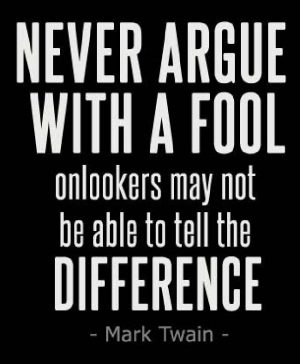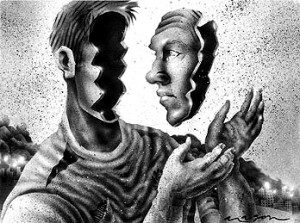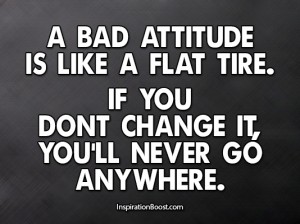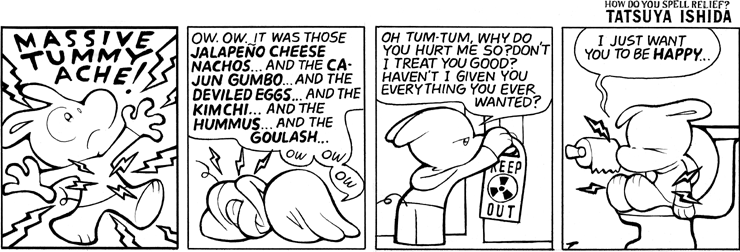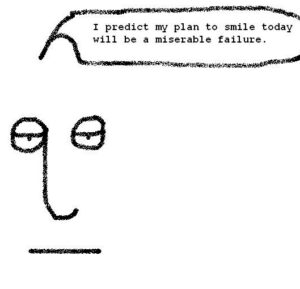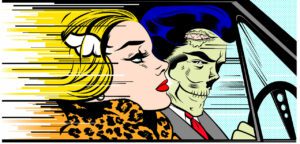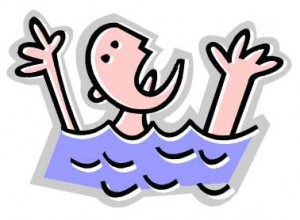Podcast: Play in new window | Download
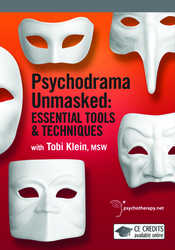 Summary: Most of us don’t know who we really are. We don’t know what we really want. We don’t know where to start, what to do to become an expanding human being.
Summary: Most of us don’t know who we really are. We don’t know what we really want. We don’t know where to start, what to do to become an expanding human being.
Here is an exercise that can be really helpful. With it you could start exercising the faculties that will lead you to clarity about who you are and what you want… eventually.
‘The most complex problems can be stripped to their essence through unemotional critical thinking. Successful problem solvers simplify complex problems while seeking kindergarten solutions’ ~ Steve Siebold
The complex problem I have been struggling with is how to teach people to start using their faculties. How to start using their brain for what it is really good for. Doing that instead of searching for answers outside of them, or in their minds. Instead of asking questions from others and never actually think.
A simple solution showed up in a conversation with a client today.
First time client, totally immersed in the current culture (politically correct). When asked to share about himself he said he gave blood every two weeks and helped out with the high school in his town.
Typical outward directed focus. Selfless. He didn’t say anything about himself. What he said though said that he wasn’t an independent thinker. Or a thinker at all.
I shared with him about my collapsed dreams with Amazon. I shared how I learned a lesson. He praised me for being tough. Then I shared with him that I had thoughts of suicide. He said that he thought I was stronger than that.
 In Christianity, especially in Catholicism, even the thought of a sin is a sin.
In Christianity, especially in Catholicism, even the thought of a sin is a sin.
So Christians are commanded to avoid thoughts of sin. Thus they avoid thoughts of anything worth thinking about. They avoid knowing themselves.
I told him that because I was able to tell the difference between my thoughts and my actions for me there was no harm in thinking through any action, any reaction. No harm thinking about suicide. No harm thinking about the aftermath, etc. Or no harm thinking where my current actions in life are leading me… even if it is a horrible place. The more I can see it the better for me. I said that thinking ‘bad thoughts’ was actually a useful exercise.
Both Christianity and Positive Thinking
That both Christianity and Positive Thinking rob people of choosing for themselves. Rob them of being able tell apples from oranges, their thoughts from their actions.
That not being willing (or able) to be in the presence of unpleasant or ‘sinful’ thoughts and ideas render them ready preys for the powers that be, for the marketeers, for everyone and anyone who want to exploit them.
When you cannot tell the difference between your thoughts and your actions, you have to act on every urge. you are a puppet on the string for your urges.
When you see an advertising for a chocolate cake… you need to have it. When you see the picture of a half naked woman, you need to do what the urge tells you to do: you are not in the driver’s seat, you are not the boss.
You cannot just be… and live your life, drive your life where you want it to go.
And that’s when it hit me”
If you cannot separate your thoughts from your actions, you’ll never make good decisions either.
If I asked you to imagine situations where the decision can be confronting. Where the decisions would be revealing, ugly, or ethically challenging. Where you would really look what decisions you could make. You would feel into what decision you like, what decisions you dislike. What decisions you would entertain. What decisions you would be too cowardly to make, fearing the consequences.
If you were willing to contemplate the question, then, through these ‘mental imaginings’ you could actually start growing. You could start getting some self-knowledge. And you could start telling apart yourself from others. What others told you and what you feel, what you think. Your own judgment. And thus you could exercise your brain, exercise your thinking, use your mental tools. Review your moral values, awaken your self-awareness.
You would access the thinking functions of the brain instead of the limited storage device mind.
My story
Until the age of about 40 I was largely a mystery to myself, because I didn’t know what I liked, what I disliked. I couldn’t tell.
I didn’t know what were my preferences, because I was cut off from my feelings. Because I was an empath I felt too much. I felt everything and the opposite.
I couldn’t tell my feelings from ‘not-my’ feelings.
For me the only way to avoid confusion and maybe even schizophrenia, was to not feel. To suppress ALL feelings. To live entirely for the mental pursuits, for intellectual pleasures. And outside of that be an automaton.
At exactly 40 I was refused admittance to a week-long course, because of my inability to tell the difference between thought and action.
Each thought occurred to me as an action in and of itself. And I needed to be able to tell them apart, and become clear.
This is just a thought… this is an action.
Sometimes the thought was totally independent, not resulting in anything, not resulting in an action…
Until that point I was thinking of every thought as action. For example,
- Thoughts of violence (considered an action) would make me a murderer… and yet I never murdered anyone.
- Thoughts of suicide sent me to the emergency room thinking I needed help.
You may have different thoughts.
- Delusion of grandeur is a result of thoughts and is an illness itself.
- Thinking yourself kind when you are really nasty is a confusion similar to this.
- Thinking yourself stuck but there is no stuck in reality is a confusion similar to this.
Since that realization at age 40 I have been pulling myself up by my bootstraps. My power became distinguishing, aka telling apart. Slowly but surely, telling things apart. Not being the ‘for you everything is the same as everything else except not always‘. I started to become able to tell apples from oranges, myself from others, actions from thoughts. And started getting to know me, my machine, my desires, my urges, my aspirations that have taken me to where I am.
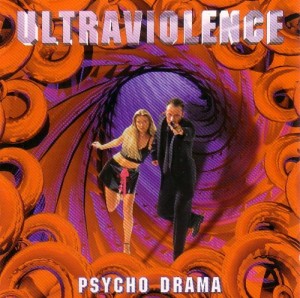 I want this for you. I want you to get clear distinction between thought and action
I want this for you. I want you to get clear distinction between thought and action
The exercise, putting yourself mentally in situations where you can test your mettle, is simple, but not easy.
Your tools of imaginings are rusty. Your imagination is weak. And you may find yourself squeamish. Hesitant. Unwilling. Scared. Pretending. You may try to outsmart the game by hiding, outrunning, outsmarting the issues, but never actually facing them.
You can get the hang of the game. And you’ll get better at it.
But bewares: You’ll do this game like you do everything else. That means most of you will quit before you start. Another half will quit after tying it once. And one or two in a hundred will hang in there, and grow.
How you do anything is how you do everything. This will only change you if you recognize your how… and consciously counter it.
 It could become a mode of meditation. A meditation where you imagine up situations, and imagine yourself in them, and go back and forth and test different choices, different actions… Thus start getting to know yourself.
It could become a mode of meditation. A meditation where you imagine up situations, and imagine yourself in them, and go back and forth and test different choices, different actions… Thus start getting to know yourself.
This is what Tai calls armchair meditation in step 54 (‘Chess-like Assiduity and armchair meditation)
What situations would you imagine? Any… the world and the internet offers up so many situations to imagine yourself in. 24 hours a day would not be enough if you wanted to play with them all.
Here are some thought starters:
What would you do if you were one of the relatives of the lost Malaysian airline plane? What would you do if your boy friend/husband got ill and he were a nasty patient? Or what would you do if you swallowed your wedding ring? What would you do if you found out you had cancer? (This last one is sorely missing for my clients who refuse to take care of themselves)
Look at the scenarios through your own eyes. Then switch and look at them from outside. Then switch again and look at them from the eyes of another person in the story, or outside of the story.
In my pondering about suicide looking at the fact through your (the client’s) eyes was a really educational experience. It helped that some celebrity’s girl friend just committed suicide. I could see being plastered on social media. It felt like being naked in public.
Do it, it’s amazing!
 Expect a growth spurt once you figure this out
Expect a growth spurt once you figure this out
Expect a growth spurt once you figure this out, once you get the hang of it. And expect lots of fun. Much like in a psychodrama class… Psychodrama on steroid.
Spend as much time with each situation as you need, until you get clear what the ‘real’ you would do in that situation.
My series of challenges are an excellent place to first dip your toes in, and then expand your immersion.
The best is to start with the Reality Challenge. It is designed to help you distinguish between thought and action. Priceless.
PS: Another article with specific exercises is already lined up for you.
 Yesterday’s article fell flat on its face… as it was predictable in view of my almost 40 year experience.
Yesterday’s article fell flat on its face… as it was predictable in view of my almost 40 year experience.

